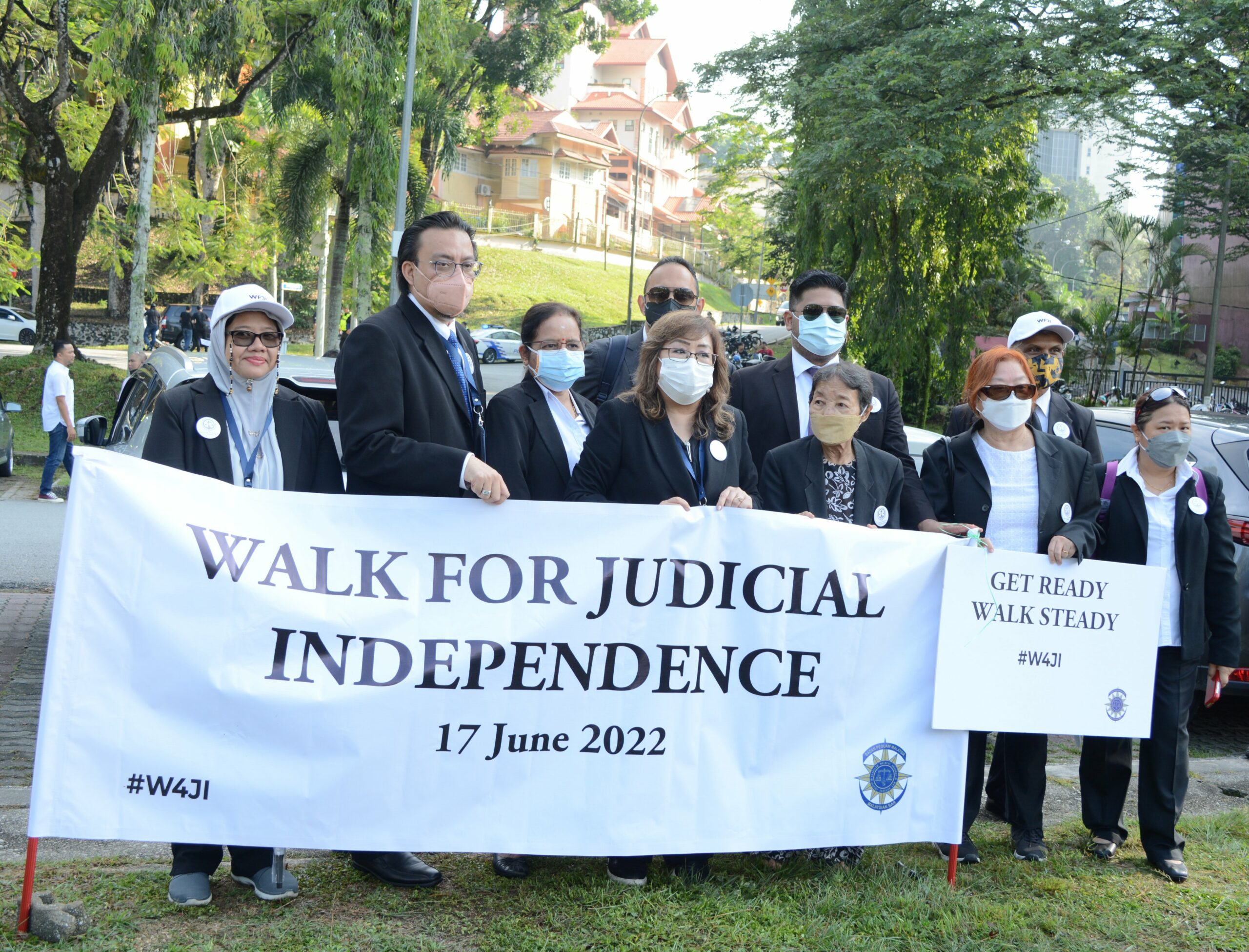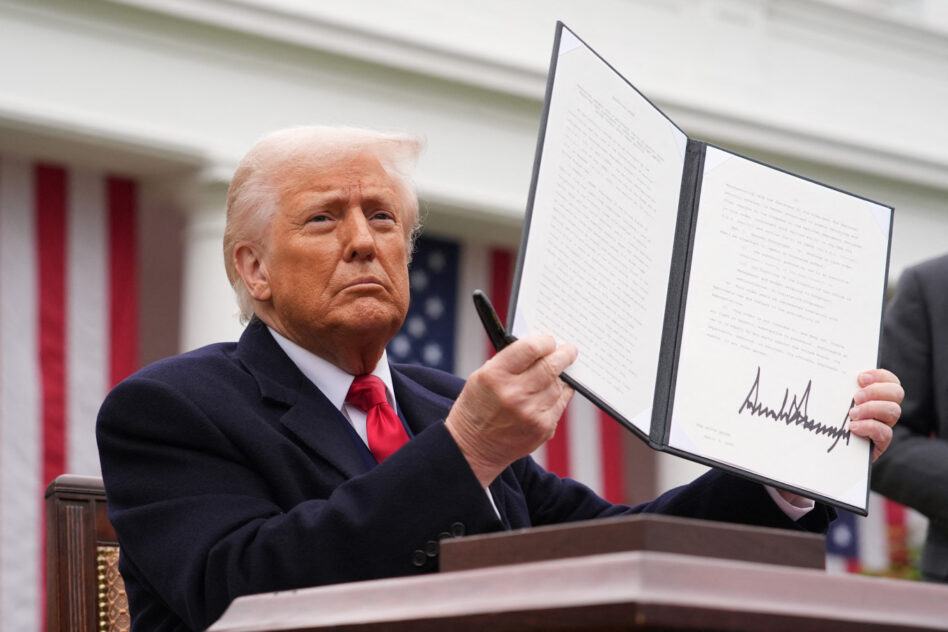Editor’s Note: The Malaysian Bar has officially called for a “Walk to Safeguard Judicial Independence” on July 14 (Monday) at 2pm whereby lawyers will ‘march’ from the Palace of Justice to the Prime Minister’s Office (PMO).
MALAYSIA is on the brink of a major constitutional crisis due to the Madani government’s alleged interference in the judiciary.
At the centre of this controversy is Prime Minister Datuk Seri Anwar Ibrahim who is accused of attempting to undermine judicial independence by influencing key appointments and extensions within the Federal Court.
The non-extension of the tenure for former Chief Justice Tun Tengku Maimun and other senior Federal Court judges has been widely perceived as a deliberate move to weaken an otherwise vibrant judiciary.
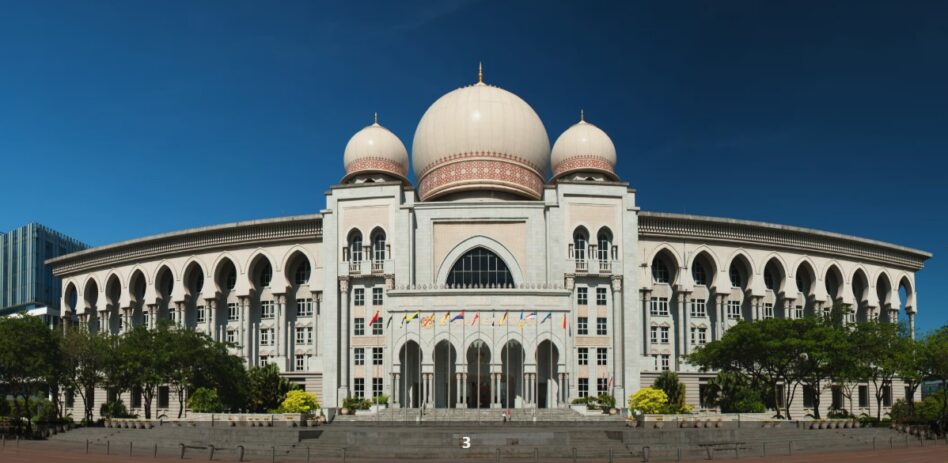
While Anwar continues to assert that judicial decisions are made independently, the mechanisms behind such decisions tell a different story.
The Judicial Appointments Commission (JAC) which was established in the wake of the V.K. Lingam episode was intended as a safeguard for judicial independence.
However, the commission appears to be increasingly powerless. Out of its nine members, five are appointed directly by the government – particularly the Prime Minister.
‘Appointing sympathisers’
It is disingenuous for Anwar to claim that the JAC operates free of executive influence. While its creation marked a positive step forward, its functions – especially regarding appointments to the Federal Court – are still constrained by the overriding authority of the PM.
Anwar frequently invokes the language of judicial independence and non-politicisation, yet conveniently omits his own central role in advising the Yang di-Pertuan Agong (YDA) on judicial appointments.
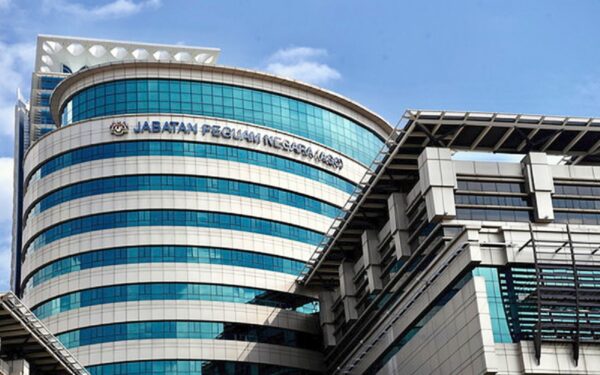
The Attorney General’s Chambers (AGC) continues to defend the constitutional legality of Anwar’s involvement but this position fails to address the inconsistencies and contradictions in the PM’s own statements and actions.
The recent appointment of a former AG as a Federal Court judge has further fuelled public suspicion – raising questions about whether Anwar is attempting to populate the judiciary with figures who are sympathetic to his leadership.
Additionally, the opaque decision-making process of the JAC regarding the extension of retiring judges’ terms has only added to the perception of growing executive interference.
Former PKR deputy president and ex-economy minister Datuk Seri Rafizi Ramli along with eight other PKR MPs, has called for the establishment of a Royal Commission of Inquiry (RCI) to investigate the deteriorating state of the judiciary.
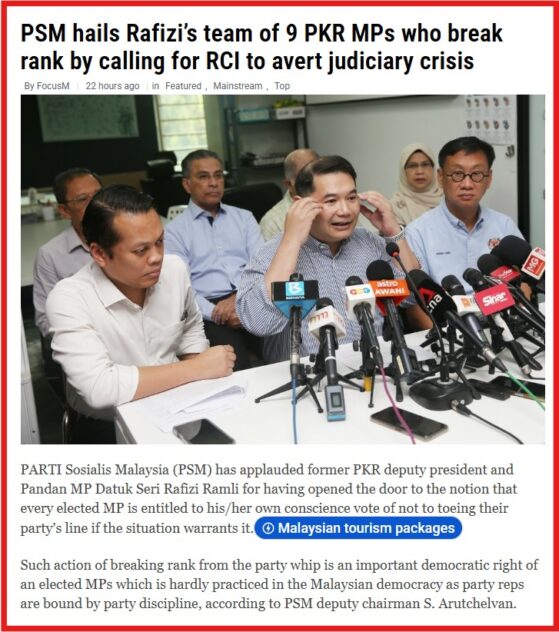
The Malaysian Bar Council is also organising a protest march in Putrajaya in defence of judicial independence.
Malaysian Bar officially calls for a “Walk to Safeguard Judicial Independence” – 14th July 2pm, Palace of Justice.
We will march to PMO.
Don’t ignore lawyers. We are sounding alarm bells on this attack on judicial independence. pic.twitter.com/khNduDBAm0
— Lim Wei Jiet (@lim_weijiet) July 8, 2025
Allegations that Anwar is seeking a compliant and malleable judiciary are deeply troubling.
These claims are linked to two critical concerns: (i) the desire to weaken the political opposition; and (ii) the hope that the civil suit brought by his former research assistant Yusoff Rawther for alleged sexual misconduct will be dismissed on grounds of prime ministerial immunity.
Looming constitutional crisis
While the High Court rejected Anwar’s application to refer eight points of law to the Federal Court, the Court of Appeal has granted a temporary stay of Yusoff’s civil suit pending a full hearing, thus further complicating public trust in the judiciary’s independence.
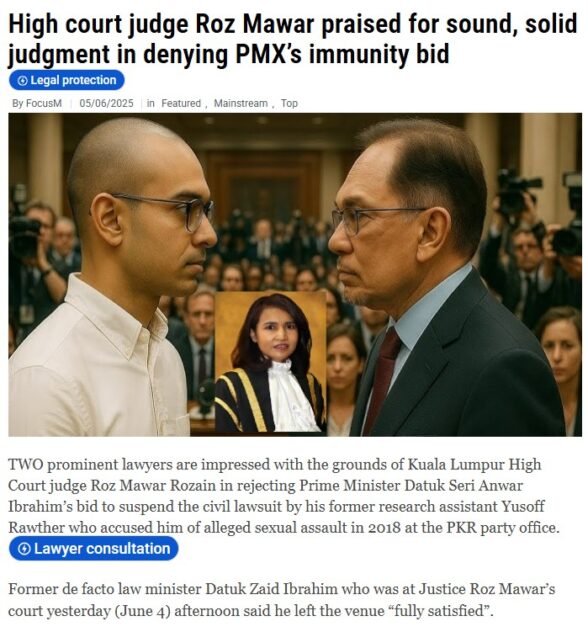
Regardless of Anwar’s rhetoric, the invisible hand of the executive looms large. The current situation echoes the judicial crisis under twice former premier Tun Dr Mahathir Mohamad when the executive first wrested control of the judiciary.
However, the crisis under Anwar appears even more grave. If Dr Mahathir clipped the judiciary’s wings through appointment powers, today’s judiciary faces a far more aggressive assault marked by selective promotions, non-renewals of independent judges, and an increasingly pliable JAC.
This sustained interference by the executive portends a constitutional crisis of unprecedented scale. The judiciary – the final bulwark for the rights of Malaysian citizens – is being battered by unchecked executive power.
There must be a RCI to investigate these serious allegations. In the interest of justice and transparency, Anwar should step down as PM pending the RCI’s findings.
Meanwhile, civil society organisations are mobilising nationwide rallies to demand his resignation.
Anwar must understand that foreign trips and grand claims of imagined investment inflows will not distract the Malaysian public from his government’s troubling encroachment on the judiciary. – July 9, 2025
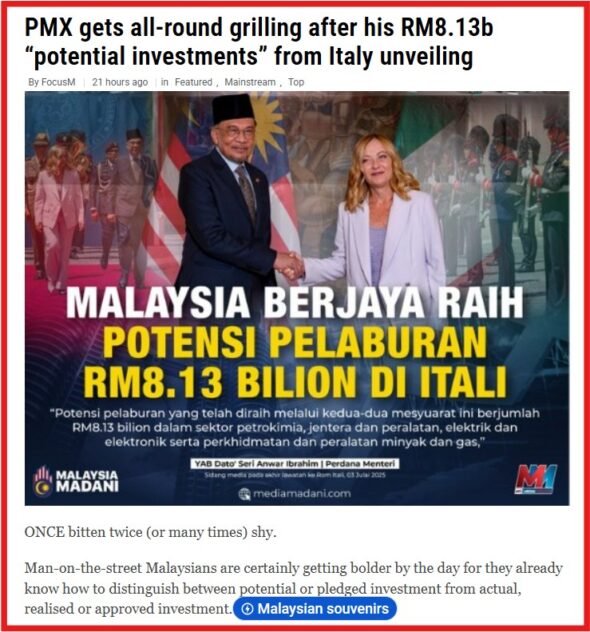
Former DAP stalwart and Penang chief minister II Prof Ramasamy Palanisamy is chairman of the United Rights of Malaysian Party (Urimai) interim council.
The views expressed are solely of the author and do not necessarily reflect those of Focus Malaysia.


